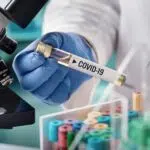When Did You Last Say Thank You… to Your Immune System?
Think about it: As soon as you entered this world, your immune system took on the job of your bodyguard. Yet, despite its relentless service, it has never received paid time off or a vacation. It has been on duty 24/7, non-stop, working three daily shifts, and rarely receives a simple Thank you.
And let us be honest, when was the last time you even acknowledged its existence? Today, that changes. Welcome to National Immune System Day, a day when we roll out the red carpet for our immune systems. It’s a day dedicated to celebrating your indispensable yet silent, overworked yet underpaid, vigilant sidekick who never gives up on you! March 11 is a day that should be remembered forever because it shaped the course of humanity forever. It marks the day the World Health Organization declared COVID-19 a global pandemic, underscoring our immune systems’ critical role in everyday life. What about YOU? Were you prepared? Did you feel protected? Did you find your immune system was up for the challenge when COVID-19 hit the scene?
National Immune System Day Challenge
March 11 is a day to honor your immune system and be intentional about giving it the helping hand it needs so that when the next crisis comes, you will be ready. Here are three simple steps to help you get started:
Step 1: Get Your Immune Score. In about 1 minute you can find out how your immune system is performing.
Step 2: Commit to take action. Choose one easy action item that will help your immune system perform better.
Step 3: Challenge your friends! Share what you are doing for your immune system with your friends and loved ones.
History of National Immune System Day
The journey of understanding the immune system is a fascinating tale of scientific discovery and advancement. Its history began long before the term ‘immune system’ was coined.
- Ancient Observations: Ancient civilizations had already observed that those who survived certain diseases did not get re-infected. This early understanding laid the groundwork for the concept of immunity.
- Discovery of Vaccination (1796): A significant milestone was Edward Jenner’s development of the smallpox vaccine in 1796, marking the birth of immunology as a science.
- The Germ Theory (Late 1800s): The Germ Theory of disease, pioneered by Louis Pasteur and Robert Koch, revolutionized our understanding of pathogens and how our body fights them.
- The Immune System Concept (Early 1900s): Scientists began to understand that the body had a complex system for fighting infections, leading to the conceptual immune system.
- Advancements in the 20th Century: The 20th Century saw rapid advancements, including discovering antibodies, the role of white blood cells, and how vaccines stimulate immunity.
- The Modern Era (21st Century): Recent breakthroughs, such as the understanding of innate, adaptive, and trained immunity, have allowed us to create much better health outcomes.
The history of the immune system is a testament to human curiosity and ingenuity. Its discovery and continual advancements underscore our survival through past pandemics but also provide hope for future challenges in human health.
National Immune System Day timeline
One of the first recorded pandemics, caused by the Bubonic plague, it devastated the Byzantine Empire and Constantinople, killing millions.
Another devastating Bubonic plague pandemic that swept through Europe, Asia, and Africa, killing an estimated 75-200 million people.
Smallpox has caused numerous pandemics throughout history, with a particularly notable one in the 18th century. It was eventually eradicated in 1980 through a global vaccination campaign, showcasing the power of the immune system's response to vaccines.
This H1N1 influenza virus pandemic infected about one-third of the world's population and led to an estimated 50 million deaths worldwide.
Caused by an H2N2 virus, this pandemic resulted in about 1-2 million deaths globally.
While not a pandemic in the traditional sense, HIV/AIDS has had a profound global impact since the early 1980s, leading to significant advancements in understanding viral infections and the immune system.
Caused by the novel coronavirus SARS-CoV-2, this pandemic led to a global health crisis, bringing the importance of the immune system into sharp focus.
The World Health Organization declares COVID-19 a global pandemic, with 118,000 cases across 114 countries.
The Moderna vaccine is authorized for emergency use, leading the way for the Johnson & Johnson vaccine on February 27 of the same year.
5 ways you can help strengthen your immune system...starting today!

National Immune System Day FAQs
What is National Immune System Day?
National Immune System Day is observed annually on March 11th. It’s a day dedicated to raising awareness about the importance of the immune system and promoting practices that enhance immune health.
Why is the immune system important?
The immune system is vital because it protects our body from harmful pathogens such as bacteria, viruses, and other foreign bodies. It is essential for our survival and plays a key role in maintaining overall health and preventing diseases.
How can I get involved or support National Immune System Day?
You can get involved by getting your free Immune Score and sharing the results on social media.
How to Observe National Immune System Day
Get Your Immune Score
Think of it as a health credit score, but way less boring.
Commit to taking action
It is time to say Thank You to your Immune system by giving it the support it needs.
Join the party!
Share your results with your friends and loved ones online.
Pioneers Of Immune System Research
Thucydides (c. 460 – c. 400 BC)
The ancient Greek historian Thucydides, although not a scientist in the modern sense, made one of the earliest recorded observations about immunity. During the Plague of Athens, he noted that people who had recovered from the plague could safely care for the sick without becoming reinfected. This astute observation was one of the first to suggest the concept of acquired immunity.
Lady Mary Wortley Montagu (1689-1762)
Lady Montagu, an English aristocrat, played a pivotal role in bringing the practice of variolation to Western medicine. After witnessing the procedure in the Ottoman Empire, where her husband was the British ambassador, she had her own children variolated. Her advocacy led to the procedure's wider acceptance in Europe, setting the stage for Edward Jenner's later development of vaccination.
Edward Jenner (1749-1823)
Often hailed as the "Father of Immunology," Edward Jenner's pioneering work in developing the smallpox vaccine laid the foundation for modern immunology. His innovative approach in using cowpox material to create immunity to smallpox was a monumental step in disease prevention.
Louis Pasteur (1822-1895)
A renowned French microbiologist and chemist, Pasteur made groundbreaking discoveries in the field of vaccination, microbial fermentation, and pasteurization. His work in developing vaccines for anthrax and rabies has had a lasting impact on public health.
Robert Koch (1843-1910)
Koch is famous for his vital contributions to the germ theory of disease. His identification of the specific causative agents of tuberculosis, cholera, and anthrax was a significant advancement in medical microbiology.
Elie Metchnikoff (1845-1916)
A Nobel laureate, Metchnikoff is best known for his work in cellular immunology. He discovered phagocytosis, the process by which cells engulf and destroy pathogens, a fundamental mechanism of the innate immune system.
Paul Ehrlich (1854-1915)
Ehrlich, another Nobel Prize winner, is known for his contributions to the field of immunology and for coining terms such as “antibody.” His work laid the groundwork for understanding the immune system's response to infection.
Rosalyn Yalow (1921-2011)
Yalow, a Nobel laureate in Medicine, co-developed the radioimmunoassay technique, which allows for the measurement of minute quantities of biological substances. This technique has been instrumental in advancing immunological research.
Bruce Beutler and Jules Hoffmann
These two scientists, along with Ralph M. Steinman, were awarded the Nobel Prize in Physiology or Medicine in 2011 for their discoveries concerning the activation of innate immunity. Their work has been critical in understanding how our immune systems first respond to infection.
Your Immune System’s Role
The Immune System is the First Line of Defense Against Diseases
The immune system is our body's primary defense mechanism against diseases. It identifies and combats pathogens like bacteria, viruses, fungi, and parasites.
The Immune System is Essential for Overall Health and Well-being
The immune system's role extends beyond fighting infections. It's integral to overall health, influencing everything from digestion to neurological function. A robust immune system is also crucial in wound healing and preventing inflammation, which can contribute to chronic diseases.
The Immune System is the Key to Advancements in Medical Treatments
Knowledge of the immune system has paved the way for innovative treatments, including immunotherapies for cancer and autoimmune diseases. If there is ever going to be a cure for cancer, the Immune System will be at the center of the technology.
National Immune System Day dates
| Year | Date | Day |
|---|---|---|
| 2026 | March 11 | Wednesday |
| 2027 | March 11 | Thursday |
| 2028 | March 11 | Saturday |
| 2029 | March 11 | Sunday |
| 2030 | March 11 | Monday |























